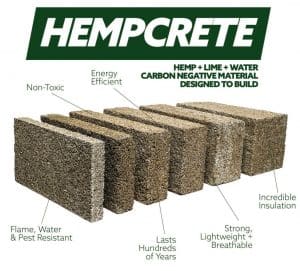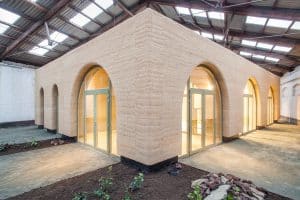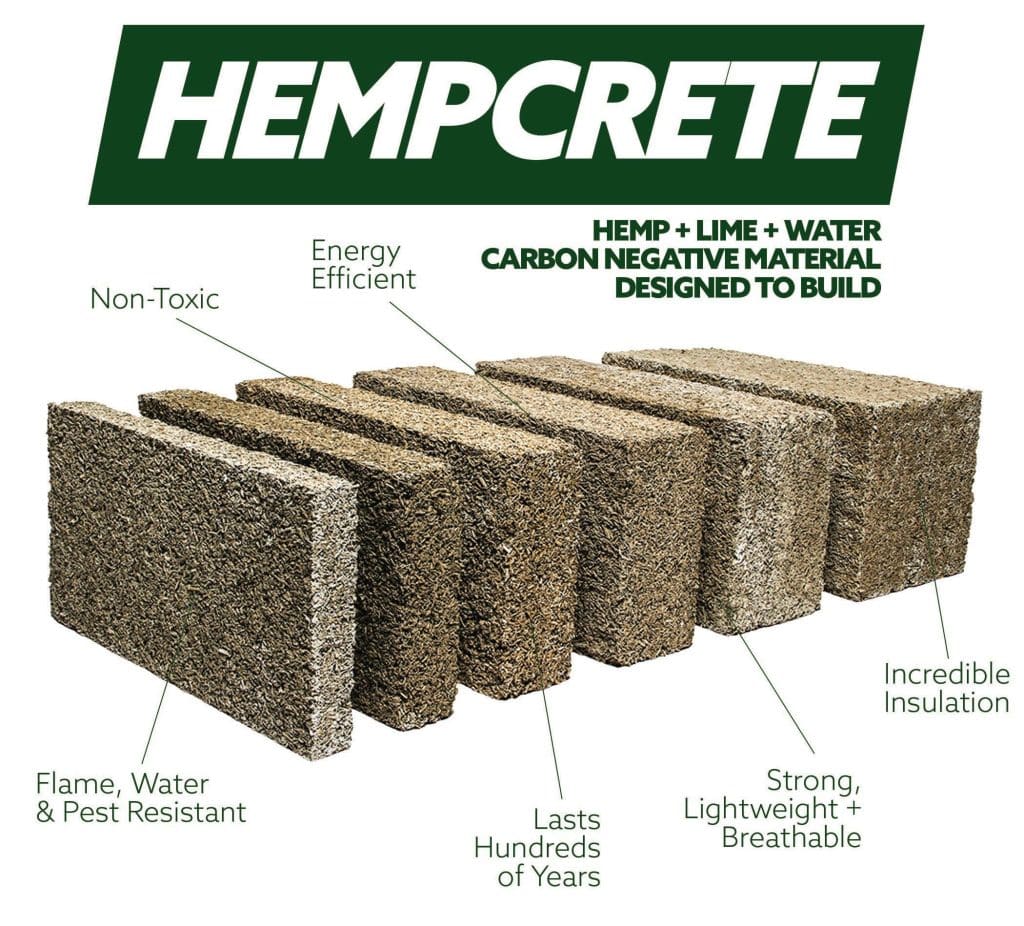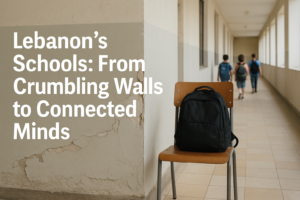Lebanon has faced immense challenges due to war and economic instability, with over 99,000 homes damaged during the 2023-2024 conflict. As the country looks towards rebuilding, there is an urgent need for cost-effective, fast, and sustainable housing solutions. Traditional construction methods are expensive, environmentally damaging, and heavily reliant on imported materials. Hempcrete, a bio-based building material, presents a revolutionary alternative that can reshape Lebanon’s construction landscape.
The Need for Change: Lebanon’s Housing Crisis
The destruction caused by war has left thousands of families displaced, while construction costs continue to rise due to inflation and import dependency. Additionally, Lebanon faces an ongoing energy crisis, with high heating and cooling costs making homes unaffordable to maintain. Traditional materials like cement and concrete are not only expensive but also contribute significantly to CO₂ emissions and environmental degradation.
Lebanon needs a smarter, greener, and locally sourced solution—and hempcrete is the answer.
What is Hempcrete?
Hempcrete is a lightweight, carbon-negative building material made from hemp hurds (the woody core of the hemp plant), lime, and water. Unlike concrete, it is non-load-bearing but provides excellent insulation, fire resistance, and durability. When used in Lego-style interlocking blocks, hempcrete allows for fast, efficient, and low-cost construction, making it perfect for Lebanon’s urgent rebuilding needs.

Image © Hemp Retreats
Why Hempcrete is the Best Choice for Rebuilding Lebanon
1. Faster & More Efficient Construction
✅ Lego-style hemp blocks can be assembled 5 times faster than traditional concrete.
✅ DIY-friendly, reducing reliance on skilled labor.
✅ Prefabricated hemp panels can accelerate mass housing projects.
2. Stronger & More Disaster-Resilient Homes
✅ Fire-resistant (hempcrete doesn’t burn like wood or synthetic insulation).
✅ Earthquake-resistant due to its lightweight and flexible structure.
✅ Mold & pest-resistant, reducing maintenance costs over time.
3. Energy-Efficient & Cost-Saving
✅ High thermal insulation reduces heating and cooling costs by 50-70%.
✅ Humidity regulation makes homes comfortable in Lebanon’s climate.
✅ Lower energy demand means homes stay cooler in summer and warmer in winter.
4. Locally Sourced & Scalable
✅ Lebanon can grow its own hemp, reducing the need for imports.
✅ Hempcrete blocks can be produced locally, creating jobs in agriculture, manufacturing, and construction.
✅ Supports economic recovery by reducing reliance on foreign building materials.

Image © Regional House Edeghem / BC architects. Image Cortesia de BC architects
How Lebanon Can Build Its Own Hempcrete Industry
Step 1: Legalize & Expand Hemp Farming
- Lebanon’s Bekaa Valley already has ideal conditions for hemp cultivation.
- The government must create a legal framework allowing hemp production for construction.
- Farmers need access to seed banks, processing facilities, and training.
Step 2: Establish Local Hempcrete Manufacturing
- Invest in decortication plants to separate hemp hurds from fibers.
- Develop a Lego-style hempcrete block factory for mass production.
- Work with engineers & universities to test block strength and obtain certifications.
Step 3: Train & Employ Local Workers
- Masonry workers and construction professionals need training in hempcrete building techniques.
- Launch pilot projects in war-affected areas to test scalability.
- Encourage NGOs and sustainable housing programs to adopt hempcrete homes.
Step 4: Scale to Mass Housing & Eco-Construction
- Build hempcrete homes, schools, and public buildings to make sustainable living accessible.
- Encourage banks and investors to fund hempcrete-based reconstruction projects.
- Market eco-friendly housing solutions across Lebanon and the Middle East.
Economic & Environmental Benefits for Lebanon
🌱 Environmental Impact
✔ Carbon-negative – Hempcrete absorbs CO₂, reducing Lebanon’s carbon footprint.
✔ Less deforestation – Hempcrete replaces traditional wood-based insulation.
✔ Less energy consumption – Homes require less heating & cooling, easing Lebanon’s electricity crisis.
💰 Economic & Financial Value
✔ Lower construction costs – 20-30% cheaper than concrete over time.
✔ Job creation – Employs farmers, factory workers, builders, and engineers.
✔ Potential for exports – Lebanon can become a regional leader in sustainable building materials.
The Future of Lebanon’s Rebuilding: A Sustainable, Self-Sufficient Nation
By embracing hempcrete construction, Lebanon can move towards a sustainable, affordable, and self-sufficient future. Instead of relying on imported materials and outdated building techniques, we can grow our own resources, build energy-efficient homes, and create thousands of jobs in the process.
Lebanon has everything it needs to build a greener, stronger future. Let’s make it happen.
Join the Movement!
Are you interested in hempcrete construction, sustainable building, or investing in Lebanon’s future? Let’s work together to create a new era of eco-friendly housing and economic recovery. Contact us today to learn more!
Useful Links: https://youtu.be/eqLXXjvQXgI?si=AIzWzuJMSAqat_Rl
For DIY enthausiasts: https://www.youtube.com/watch?v=aB07P3yrQY8
Fire Test: https://www.youtube.com/shorts/JQCoVeNbe4Q




